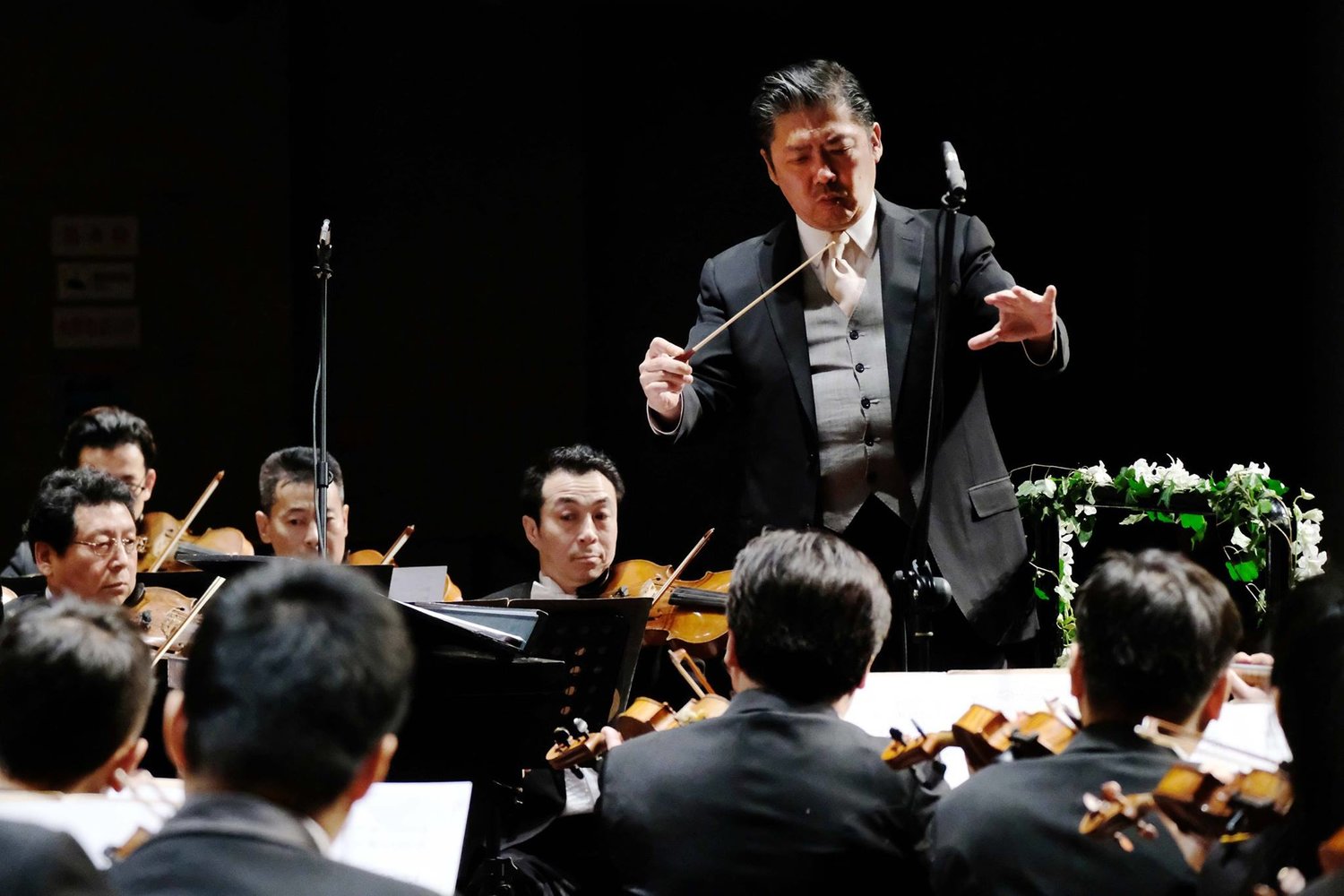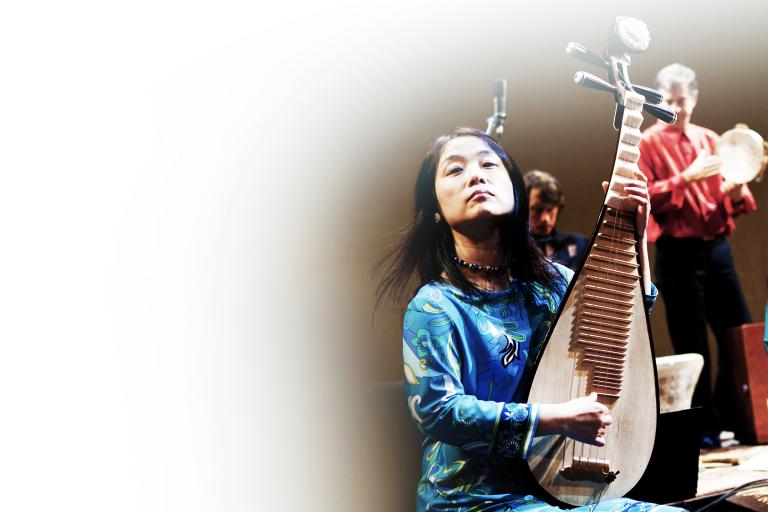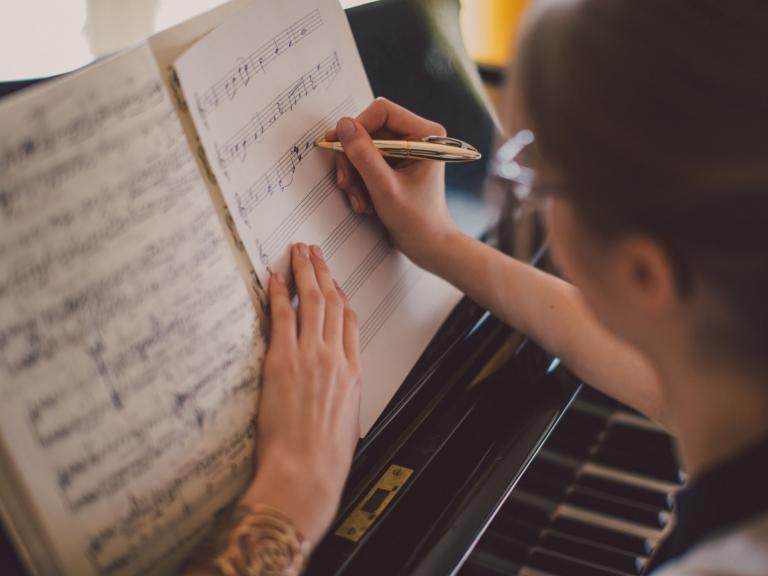Chinese Musicians in the New Period
1 min readIn the late 1970s, China began to carry out reform and opening up and entered a new historical period. Sino-foreign music exchange also entered a new period. Many famous musicians and bands in the world came to perform in China successively, Chinese musicians and bands also began to go abroad more, and exchange with foreign musicians kept deepening. Against the backdrop of increasingly active Sino-foreign music exchange, Chinese music showed the trend of diversification in an increasingly open environment of development, and composition, musical performances and singing all thrived.

In terms of composition, Tan Dun and Guo Wenjing are really the best.
Tan Dun is a famous Chinese composer and conductor enjoying international reputation. He won important international music awards such as the Academy Award for Best Original Score, the Grammy Award and the Grawemeyer Award, and was rated by The New York Times as one of “the ten most important musicians in the international music circles”. In recent years, Tan Dun participated in music creation for many important events in China: in 1997, to celebrate the return of Hong Kong, he created Heaven Earth Mankind: Symphony 1997; in 2008, he created the sports demonstration symbol music and awarding ceremony music of the Beijing Olympic Games; in 2010, he created the theme song of the Shanghai Expo in cooperation with American composer Quincy Jones.. Tan Dun’s music goes beyond the boundaries of the classic, the modern, the Eastern, the Western, multimedia and performing arts, and is widely aired by numerous important symphony orchestras, opera houses, art festivals, radio stations and TV stations in the world. As a conductor, Tan Dun often conducts world-famous orchestras such as the Royal Concertgebouw Orchestra, the French National Orchestra, the BBC Symphony Orchestra, the Italian National Orchestra and the Metropolitan Opera in the United States. The first online symphony in the world Hero created by him in cooperation with Google/YouTube was watched online by tens of millions of viewers. His representative multimedia work The Map was first performed by the Boston Symphony Orchestra in the world, and the manuscript was permanently collected and exhibited in the Carnegie Hall’s gallery of world composition masters’ manuscripts. He was the first Eastern musician to receive this honor.
Guo Wenjing is a professor at the Composition Department of the Central Conservatory of Music. His representative works include operas A Madman’s Diary and Night Banquet, symphony Hard Ways to Shu, concerto Desolate Mountain, chamber music Drama and Inscriptions on Bones and Tortoise shells, etc. He is similar to Tan Dun in music. Both of them are good at using Chinese elements and integrating them with Western musical forms. The difference is that Guo Wenjing lives in China and is more sensitive to Chinese culture, Chinese people’s psychologies and modern topics. The New York Times calls him “the only Chinese composer who has never lived abroad but established an international reputation”. Many important international art festivals and opera houses arrange his solo concerts or performances of his operas.
Guo Wenjing’s works are characterized by profound and magnificent musical language. Tan Dun’s evaluation of him is:”This composer will be with tall mountains, vast land and long rivers forever.”
In terms of musical performances, Lu Siqing, Lang Lang, Li Yundi and other musicians enjoy international reputation.

Lu Siqing is a famous Chinese violinist, reputed by the international authoritative music magazine The Strad as “a rare talent”. He was enrolled by the Central Conservatory of Music at the age of eight as an exception, and became the youngest student at this famous music school in history. At the age of 17, he won the first prize of the Paganini Competition, the highest international prize for violin art, and became the first Easterner to receive this honor. Lu Siqing’s most well-known representative work is violin concerto Butterfly Lovers created by composers He Zhanhao and Chen Gang in 1959. It is one of the most popular Chinese modern musical works. The concerto vividly displays the love tragedy of Liang Shanbo and Zhu Yingtai withmelodious music. Meanwhile, it is also mingled with spectacular chords of Western musical instruments. The violin is used to imitate special skills of playing Chinese bowed instruments. It can be called an example of “combination of Chinese and Western styles”. LuSiqing’s Butterfly Lovers interprets this sad love story in depth with more profound spirit and broader vision, making people feel intoxicated and stupefied. Even the original composers He Zhanhao and Chen Gang were moved to tears, thinking that his performance of Butterfly Lovers was the best.
Lang Lang is the first Chinese pianist having cooperated with first-class international orchestras in Berlin and Vienna for long and held solo concerts in famous concert halls in the world. Lang Lang’s musical talent and passionate personality complement each other, making him the best interpreter of classical music. Lang Lang’s road to the world was quite legendary: in 1999, at the star concert of the Ravinia Festival Chicago,17-year-old Lang Lang dramatically replaced Andrew Watts who felt sick, cooperated with the Chicago Symphony Orchestra, and played Tchaikovsky’s Piano Concerto No.1. The performance was conducted by famous conductor Eschenbach. After Lang Lang played the last note, the whole audience stood up and applauded thunderously for long. Thus Lang Lang began his music journey around the world, and made a series of glorious achievements. Sometimes Lang Lang’s performance has a magical effect reaching the acme of perfection, making people forget the existence of the performer as if he is integrated with the rising and falling keys. When the performance reaches the climax, Lang Lang seems to be possessed by his inner spirit, and the style is changeful and very charming.
In terms of singing, Liao Changyong is a Chinese singer active on the world opera stage. He has won many international vocal awards,e.g. in 1996 and 1997, Liao Changyong successively won the first prizes at the 41St French International Toulouse Singing Competition, the Placido Domingo World Opera Competition and the Queen Songja International Music Competition, and shocked the world music circles.
Domingo called him “a world-class singer fostered by China, having superb skills and musical perceptibility and using music in the heart to touch people..a superb talent of the new generation”. In 2008, Liao Changyong successfully held his solo concert in the Golden Hall in Vienna. He sang Italian and German songs so perfectly that foreign musicians were greatly shocked after learning he studied vocal music in China only.
They never expected that China could foster such an outstanding singer!A conductor of the Vienna State Opera also praised him:”This young man from Asia has superb talent, his heavenly sound is so extraordinary, and his skill is also perfect!”









